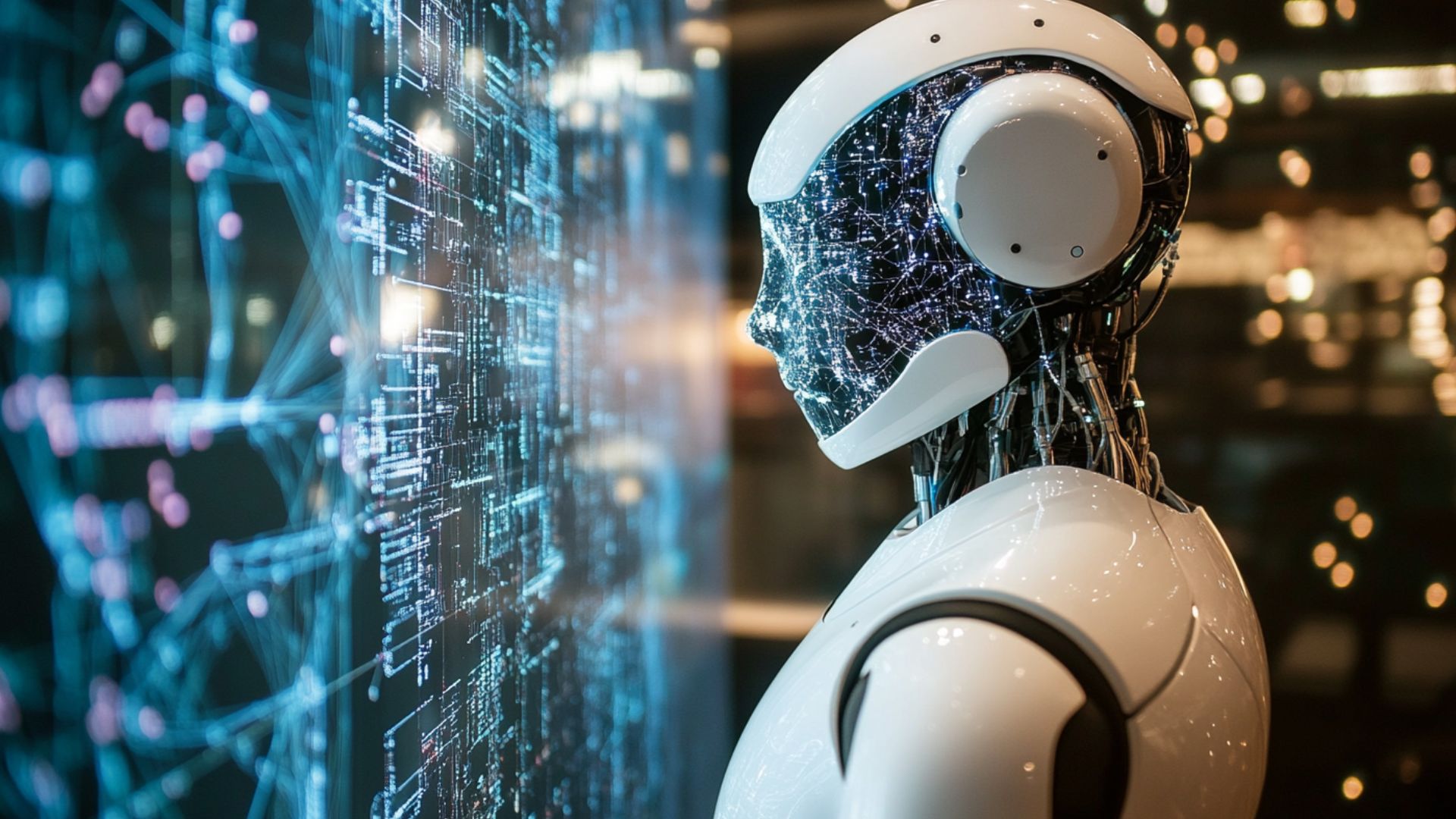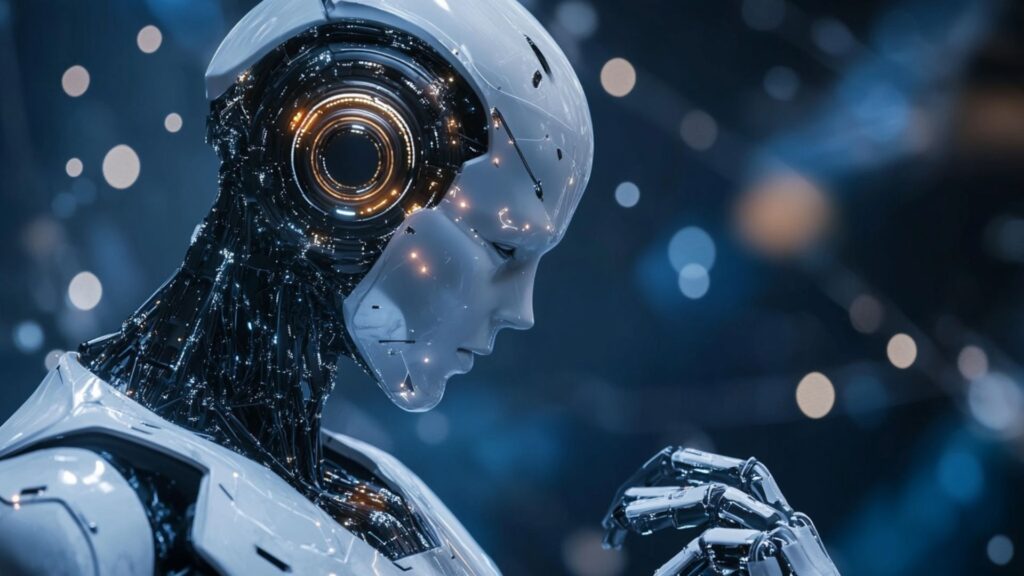Transform Your Business: Key Application Areas of Artificial Intelligence Today

In today's digital landscape, adopting new technologies has become essential for business success. Companies across industries are investing heavily in AI technologies that drive growth and profitability. Strategic Artificial intelligence and applications helps improve customer communication and automate critical business processes while revolutionizing how organizations operate.
AI is transforming healthcare, finance, logistics, and countless other industries through intelligent automation and data-driven insights. By leveraging artificial intelligence applications, companies reduce manual workload while maintaining high-quality service standards. From data processing to rapid decision-making, technology enables businesses to operate more efficiently than ever.
The combination of AI capabilities with human expertise creates powerful synergies that drive business success. When people and AI work together effectively, organizations accomplish more while strengthening their market position. Strategic technology adoption and sound digital policies are fundamental to achieving long-term success. Reducing response times, optimizing costs, and enhancing customer communication remain top priorities for modern businesses.
Understanding Artificial Intelligence and Its Core Applications
Understanding AI fundamentals is essential for companies developing comprehensive digital strategies. Artificial intelligence enables machines to perform tasks that typically require human intelligence. These tasks often include repetitive processes, speech recognition, and complex data analytics. AI optimizes business operations through intelligent automation and enhanced decision-making capabilities. It also facilitates personalized customer interactions that drive satisfaction and loyalty.
Companies leverage artificial intelligence to make data-driven decisions and predict future market trends accurately. Artificial intelligence and applications involve continuous learning from experience and historical data to improve performance. Here are the key areas where AI makes the most significant impact:
- Machine Learning (ML). Machine learning represents the most effective approach for analyzing historical data and extracting insights. These systems make accurate predictions based on past performance and identify emerging trends. Machine learning often involves comprehensive risk assessment and future forecasting capabilities.
- Natural Language Processing (NLP). NLP serves as an essential tool for understanding and processing human language naturally. Chatbots and virtual assistants leverage NLP to enhance customer communication significantly. Customer experiences reach new levels through intelligent automation and responsive service delivery.
- Computer Vision. The application of AI includes computer vision for recognizing and analyzing images from videos and photographs. Computer vision also encompasses enhanced security systems and diagnostic tools for healthcare applications. Companies can monitor product quality and identify specific objects with remarkable accuracy.
- Robotics. Organizations implement robotics in manufacturing environments to reduce physical demands on workers. Companies optimize complex processes that traditionally require significant time and human resources.
Machine Learning: Driving Predictive Insights and Automation
Machine learning represents the primary branch of artificial intelligence that enables computers to learn from data. This technology excels at identifying patterns in business processes and predicting future outcomes. Machine learning helps organizations anticipate events and provide customers with exactly what they need.
Machine learning with applications' impact factor creates powerful advantages for modern businesses. Companies can discover hidden patterns within millions of data points that would be impossible to identify manually. Organizations can predict future trends and offer customers personalized products and services. Machine learning enables detailed customer behavior analysis that considers individual preferences and purchasing history.
Companies in retail and services use these insights to predict future trends and create targeted campaigns. Organizations leverage machine learning to automate data processing tasks, reducing operational costs significantly. Here are key examples of machine learning applications:
- Customer Segmentation. Machine learning enables sophisticated customer segmentation based on value and importance to the organization. Systems distribute customers according to demographic indicators and personal preferences automatically. These systems account for individual behavior patterns and personalization requirements for each customer segment.
- Fraud Detection. Advanced applications of artificial intelligence for fraud detection are critical in the financial sector. Systems analyze transactions in real-time, identifying even the smallest suspicious patterns. These systems can detect unusual behavior patterns and cyber threats before they cause damage.
- Supply Chain Optimization. Machine learning optimizes supply chain operations through intelligent demand forecasting and inventory management. Companies can predict demand accurately and maintain optimal product quantities. Machine learning improvements in inventory management and logistics have transformed operational efficiency while minimizing costs.
Natural Language Processing: Enhancing Communication and Support
The latest artificial intelligence applications prominently feature natural language processing capabilities. These systems understand and generate human language to provide accurate responses to customer queries. Through natural language processing, companies achieve remarkable success in customer interactions and support services. Language processing enables systems to interpret text and data correctly regarding customer questions.
The primary functions of natural language processing include language understanding and natural response generation. Understanding involves interpreting text accurately, detecting different intentions, and extracting meaningful context. Users receive clearly generated answers to their questions with appropriate context and helpful information. Classification and recognition of common entities such as dates, locations, and time references are equally important.
Systems generate natural, human-readable text through continuous training on historical data and interactions. Automatic response generation occurs through machine learning algorithms that improve over time. Here are prominent examples of natural language processing applications:
- Chatbots and Virtual Assistants. Chatbots and voice assistants have become integral components of modern business operations. Users receive 24/7 support and engaging interactions that resolve issues quickly. Customers can ask various questions and receive clear answers with understandable context. In real-time, companies can collaborate with customers and promote their products effectively.
- Sentiment Analysis. Sentiment analysis involves continuous monitoring of customer interactions and feedback across multiple channels. Systems analyze customer emotions and preferences to understand satisfaction levels. Real-time data analysis of reviews and comments provides actionable insights and recommendations. Monitoring helps maintain brand reputation and improve customer communication strategies.
- Automated Customer Support. Advanced systems can route customer requests according to priority and complexity levels. These systems analyze and sort requests automatically, reducing response times significantly. Customers receive improved experiences and remain satisfied with quick, accurate support.
Key Industry Applications of Artificial Intelligence

Application of artificial intelligence extends across numerous industries, delivering substantial benefits and competitive advantages. AI integrates into business strategies to improve company performance, automate processes, and reduce costs. The primary objectives include reducing errors and enhancing customer experiences across all touchpoints. Here are the main sectors successfully implementing artificial intelligence:
- Healthcare. Artificial intelligence revolutionizes disease diagnosis in early stages when treatment is most effective. Healthcare professionals use AI to prescribe personalized treatment plans and deliver individualized medical services. Chatbots and virtual assistants enable easy appointment scheduling and medication reminders for patients. Healthcare organizations use AI to verify drug safety and monitor medical equipment performance.
- Finance. Financial services represent primary application areas for artificial intelligence implementation. Financial companies use AI for sophisticated fraud detection and prevention systems. Organizations can identify fraudulent activities and provide secure services to customers. AI enables financial market analysis and assists customers with complex transactions seamlessly.
- Retail. Retail businesses provide personalized product recommendations that increase sales and customer satisfaction. Companies monitor emerging markets and analyze trends in customer preferences effectively. Retailers can manage inventory efficiently through AI-powered demand forecasting. Logistics optimization and cost reduction are equally important benefits of AI implementation.
- Manufacturing. Manufacturing organizations implement predictive maintenance for equipment before breakdowns occur. Robotic systems reduce human workload and improve workplace safety significantly. Artificial intelligence application in manufacturing optimize production processes and improve quality control measures.
- Transportation. Transportation systems use artificial intelligence to optimize routes and enhance safety measures. Autonomous vehicles maximize safety precautions on roads for all users. AI systems manage traffic flow and create safer environments for drivers and pedestrians.
AI in Healthcare: From Diagnosis to Patient Care
Artificial intelligence in healthcare represents the most effective approach to improving treatment outcomes and patient care. The focus centers on diagnosing serious diseases early and providing comprehensive patient support. Healthcare AI enhances service quality and increases diagnostic accuracy significantly. AI helps medical professionals reduce human errors in various diagnostic procedures.
Artificial intelligence and its applications are essential for improving treatment outcomes and patient satisfaction. Healthcare providers can develop personalized approaches for each patient while using resources more efficiently. Patient waiting times and routine administrative tasks for medical professionals are reduced substantially. Here are the main AI applications in healthcare:
- Medical Image Analysis. Artificial intelligence detects various pathologies in early stages when treatment is most effective. Medical professionals use X-rays, MRIs, and CT scans with AI assistance to identify abnormalities quickly. AI accelerates diagnostic processes with high accuracy that improves treatment planning and outcomes.
- Personalized Treatment Plans. AI enables healthcare providers to create customized treatment plans tailored to individual patient needs. Treatment recommendations are generated through analysis of genetic data and medical history. AI helps predict treatment effectiveness and monitor patient health progress continuously.
- Virtual Medical Assistants. Artificial intelligence applications include virtual medical assistants that provide patients with information and treatment recommendations. AI-powered systems remind patients about medication schedules, appointment times, and communication with healthcare providers.
AI in Finance: Revolutionizing Risk and Fraud Management
AI in finance represents the most effective approach to managing financial risks and ensuring security. Artificial intelligence excels at detecting fraudulent activities and conducting secure financial transactions. AI helps financial teams make rapid decisions while maintaining increased security and continuous monitoring. The financial sector creates secure environments for monetary transactions and wealth management.
Compliance with financial regulations and continuous accountability are equally important aspects of AI implementation. Companies using artificial intelligence gain competitive advantages and enhanced risk control capabilities. Here are the latest artificial intelligence applications in the financial sector:
- Credit Scoring. Rapid decision-making remains crucial for financial services success. Credit scoring involves assessing customer capabilities and payment capacity accurately. Companies use various methods to gather comprehensive information about potential borrowers. Analyzing financial status and loan repayment ability forms the foundation of responsible lending.
- Fraud Detection. Financial institutions can detect fraudulent activities at the earliest stages of development. AI implementation helps analyze transactions in real-time with sophisticated pattern recognition. Companies identify anomalies that could create serious problems for business operations. These systems alert security teams about suspicious activities for immediate response and prevention.
- Algorithmic Trading. The application of artificial intelligence enable automatic trade execution based on market conditions and predictive models. Companies use sophisticated algorithms to predict market changes and optimize investment strategies. Proper analysis helps establish reliable security measures for business continuity. Compliance monitoring and regulatory oversight remain essential for financial sector operations.
Implementing AI Solutions: Challenges and Best Practices

The question "What are the applications of artificial intelligence?" remains highly relevant for modern businesses. Most sectors, including healthcare, finance, and retail, are actively implementing AI solutions. Successful implementation helps optimize workforce productivity and strengthen customer relationships. However, AI implementation presents specific challenges that organizations must address strategically:
- Data Quality. For AI models, data accuracy and completeness are fundamental requirements. Inadequate storage systems and insufficient data structure create significant implementation obstacles.
- Integration Complexity. Existing systems often face compatibility issues with new AI solutions. Companies should carefully plan AI implementation to align with business objectives and existing infrastructure.
- Ethical Considerations. Artificial intelligence and its applications raise important questions about ethical implementation and responsible use. Data privacy concerns and lack of transparency can become serious obstacles to adoption. Companies must make informed decisions about protecting customer data and ensuring compliance.
Best practices for implementing new technologies offer significant advantages for organizations. Ongoing training and support are essential for internal teams and successful adoption. Companies need to build trust with customers and establish clear policies and procedures. Transparency and data confidentiality are fundamental to long-term success.
Organizations must clearly define their objectives and scale implementation through strategic investments. Selecting high-quality projects and maintaining continuous monitoring helps achieve sustainable success. Flexibility in system design and controlled data processing are equally important considerations.
Future Trends: The Evolving Landscape of Artificial Intelligence Applications
Understanding artificial intelligence areas of applications requires awareness of emerging trends and future developments. Future AI trends predict significant advancement opportunities for forward-thinking companies. Autonomy, flexibility, and transparency represent the main advantages of next-generation AI systems. Development continues focusing on deeper automation of routine processes while reimagining products and services.
Strategic investments in artificial intelligence and supporting technologies will elevate businesses to new performance levels. Here are key emerging technologies and applications:
- Edge AI. Data processing occurs directly on devices, computers, and mobile phones rather than centralized servers. This approach reduces latency and improves security while providing faster response times. Proper application of AI helps companies achieve success and realize significant financial benefits.
- Explainable AI. Explainable artificial intelligence provides transparency and data confidentiality for business decisions. Companies can make informed decisions based on clear, understandable AI model outputs and recommendations.
- AI in the Internet of Things (IoT). AI integration with IoT devices enables advanced automation and predictive capabilities. High-level prediction of equipment failures and process optimization becomes essential for modern operations.
Companies are streamlining workflows and continuously monitoring performance metrics. Transparency, reliability, and ethical behavior remain fundamental principles for AI implementation. Many organizations focus on improving employee skills and providing comprehensive training programs. Continuous development and digital transformation will help achieve even greater success levels.
Enhanced customer service remains a critical priority for AI applications. Virtual assistants and chatbots are essential for providing human-like interactions and support experiences.


